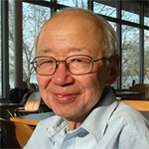
All lectures are presented fully online via Zoom every Friday at 3:30 PM. The link to join the meeting is https://go.wisc.edu/l880yf except when otherwise indicated. Alumni, friends and the public are always invited to attend.
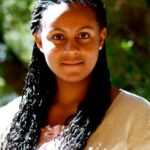 February 28th – Biodiversity in the Anthropocene: Integrative perspectives on responses to environmental change from the Quaternary fossil record
February 28th – Biodiversity in the Anthropocene: Integrative perspectives on responses to environmental change from the Quaternary fossil record
Assistant Professor Melissa Kemp, University of Texas-Austin
My research program leverages cross-cutting interdisciplinary approaches to explore the responses of species, communities, and ecosystems to environmental changes during the Quaternary, a geological period that encompasses the last 2.6 million years and features significant climate fluctuations, human evolution, and the emergence of anthropogenic impacts to all earth systems. In this talk, I will show that by integrating data retrieved from novel paleontological excavations, museum collections, as well as the vast archaeological and natural history literature, we can elucidate significant and previously undocumented patterns of extinction, colonization, and diversification in critical systems of conservation concern. Specifically, I will describe innovative tools and methods that our lab has developed to identify and characterize fossil taxa, because trait data and accurate taxonomic identifications are foundational to characterizing biodiversity in the fossil record. Then, I will show how precise characterization of biodiversity has, in turn, led to new insights into the effects of long-term anthropogenic impacts on biodiversity, and the responses of biodiversity to environmental change. Finally, because my research program is heavily reliant on fieldwork and museum collections, I am committed to developing place-based, community-engaged research opportunities that empower people to become environmental stewards and scientists. I will briefly discuss some of the STEM education and community-engaged initiatives that I am involved in to broaden participation in the biological and geological sciences.
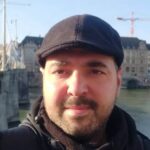 March 7th– The Possibilities of Writing an Environmental History of Palestine: De-colonial Methods from Palestine
March 7th– The Possibilities of Writing an Environmental History of Palestine: De-colonial Methods from Palestine
Dr. Des Saad Amira, Al Quds Bard College-Palestine
Drawing on six years of ethnographic research in the highlands of the West Bank, this presentation will explore a central question: Can Palestinians articulate their own environmental history? Such a question arises from the settler colonial condition in Palestine and the resulting absence of a sovereign Palestinian polity. In a context dominated by the environmental and epistemic violence perpetrated by Israeli settlers, soldiers, rangers, the space for Palestinian voices within the environmental discourse diminishes. Under these circumstances, the significance of Palestinian oral histories, family photo albums, and personal diaries becomes crucial. By presenting excerpts of these environmental histories related to several villages in the Salfit district, I aim to challenge prevailing environmental narratives and highlight an indigenous environmental history from below.
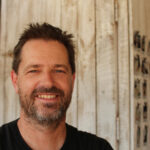 March 21st– Sustaining critical infrastructures: the choreographic work of seaport mobilities
March 21st– Sustaining critical infrastructures: the choreographic work of seaport mobilities
Professor Chris Gibson, University of Wollongong
Advocates of automation and artificial intelligence (AI) trumpet technological disruption and the possibilities of algorithmic management, while critics warn of ethical breaches and widespread job loss. Less visible in the debate has been the necessary human labor that keeps economy and society going in challenging and increasingly volatile environments. The labor that sustains critical infrastructures is often hidden from public view, and taken for granted—for example, those workers who maneuver ships at seaports. In this talk, based on a new project exploring ethnographies of infrastructural transition labor, I take to the water to learn how ports function as spaces of everyday mobilities work. The story follows a day in the working life of marine pilots—a specialist, locally-based workforce who board foreign-flagged ships to dock them safely. Their labor process is, I argue, a form of choreography: executing motions in correspondence with other workers, infrastructures, vessels, and environmental forces. Increasingly volatile oceanic conditions require technical knowledge of ships and guiding equipment, plus deep place-based knowledge of port idiosyncrasies and responsiveness to elemental forces—working with rather than against swell and wind, tides, channels, and weather. While global shipping becomes ever more cutthroat in pursuit of efficiencies, marine pilots choreograph mobilities with respect for earthly forces and the bulk and power of ships and seas, and thus perform the necessary infrastructural labor that offsets risk. Amidst worsening environmental hazards, we offer choreography as an analytical frame to center the work, workers, collaboration, and more-than-human interactions that sustain life on a daily basis, amidst growing environmental volatility, geopolitical tensions and hazard risks.
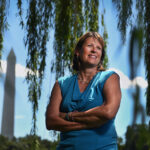
April 4th– Public Space and Parks in Peril
Professor Lisa Benton-Short, George Washington University
This talk will examine three contemporary challenges to public space and nations parks, including conversations and conflicts over memorial removal, the privatization of our public lands and the consequences of disinvestment in the public realm.
Lisa Benton-Short is Professor of Geography at George Washington University. She is an urban geographer with an interest in the dynamics of the urban environment from many angles, including: urban sustainability, planning and public space, monuments and memorials, urban national parks, globalization, and immigration. She has authored thirteen books, including The National Mall: No Ordinary Public Space (2016), Urban Sustainability in the US: Cities Take Action (2019) and A Regional Geography of The United States and Canada (2019). Her most recent book, Sustainability: An Introduction, was published in 2023.
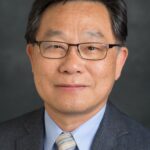 April 11th– A Human-Centered Space-Place Framework For GIScience and GeoAI
April 11th– A Human-Centered Space-Place Framework For GIScience and GeoAI
Professor Shih-Lung Shaw, University of Tennessee Knoxville
Geographic information science (GIScience) and geospatial artificial intelligence (GeoAI) traditionally have placed an emphasis on locations in physical space without paying sufficient attention to humans. This presentation begins with the question of “What does ‘geo’ mean in GIScience and GeoAI?” and proposes a human-centered space-place framework for future development of GIScience and GeoAI. Humans are dynamic and living entities who must fulfill various needs in their lives via different activities and interactions (collectively known as human dynamics). In the meantime, our world has transitioned into a hybrid physical-virtual world enabled by modern technologies. The growing dominance of virtual space in fulfilling human needs (e.g., online shopping, Zoom meetings, online social networks, etc.) presents challenges to the future of GIScience and GeoAI. It is critical to have future GIScience and GeoAI better considers humans and move beyond the conventional focus on locations in absolute space. The human-centered space-place framework, which integrates the concepts of locations in absolute space, locale in relative space, identity in relational space, and sense of place in mental space, extends the current focus of GIScience and GeoAI to better address changing human dynamics in a hybrid physical-virtual world. Examples will be provided to illustrate broader theoretical and practical implications of this framework to GIScience/GeoAI research and applications.
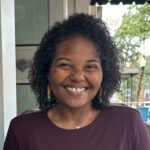 April 25th–Salvation: Community Mobilization in Southern Appalachia after Hurricane Helene
April 25th–Salvation: Community Mobilization in Southern Appalachia after Hurricane Helene
Associate Professor LaToya Eaves, University of Tennessee Knoxville
The arrival of Hurricane Helene in September 2024 had a catastrophic impact on southern Appalachia, challenging the discursive formation of the region as a climate haven. The storm, the deadliest continental U.S. event since Hurricane Katrina (2005), caused significant environmental and community devastation, the full extent of which is still unfolding. As federal and state entities organized emergency assistance, individuals and community groups also mobilized their own efforts. This paper investigates the nature and emergence of these grassroots responses in the wake of Hurricane Helene, with a particular focus on Black and queer community-led efforts in western North Carolina.
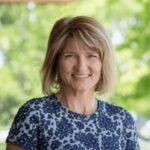 May 2nd– Mapping American Childhoods: Building a Critical Historical Geography of Childhood with Geo-Visualizations and Story-Telling
May 2nd– Mapping American Childhoods: Building a Critical Historical Geography of Childhood with Geo-Visualizations and Story-Telling
Professor Megan Cope, University of Vermont
Child labor. Orphanages. One-room schoolhouses. Childhood diseases and infant mortality. Crowded cities and remote rural spaces. Children’s spaces of the early 20th century can illuminate broader social trends of a place and time through examining the cultural and material production of spaces, as well as children’s experiences of such spaces. The project shared here explores geographic variation of childhoods across the US, the ways that everyday spaces were imagined and enacted for and by children, the movement of children environment. The presentation draws from work done through the Mapping American Childhoods project, which based on combining archival research with comics, geo-visualization, and digital story-telling. Topics include Burlington, Vermont’s Home of Destitute Children; state-and national-level policies on child labor and compulsory schooling; the emotional geographies of mothers who wrote to the US Children’s Bureau; and exploring the material culture of children’s lives through everyday objects and media representations of the early 20th century.